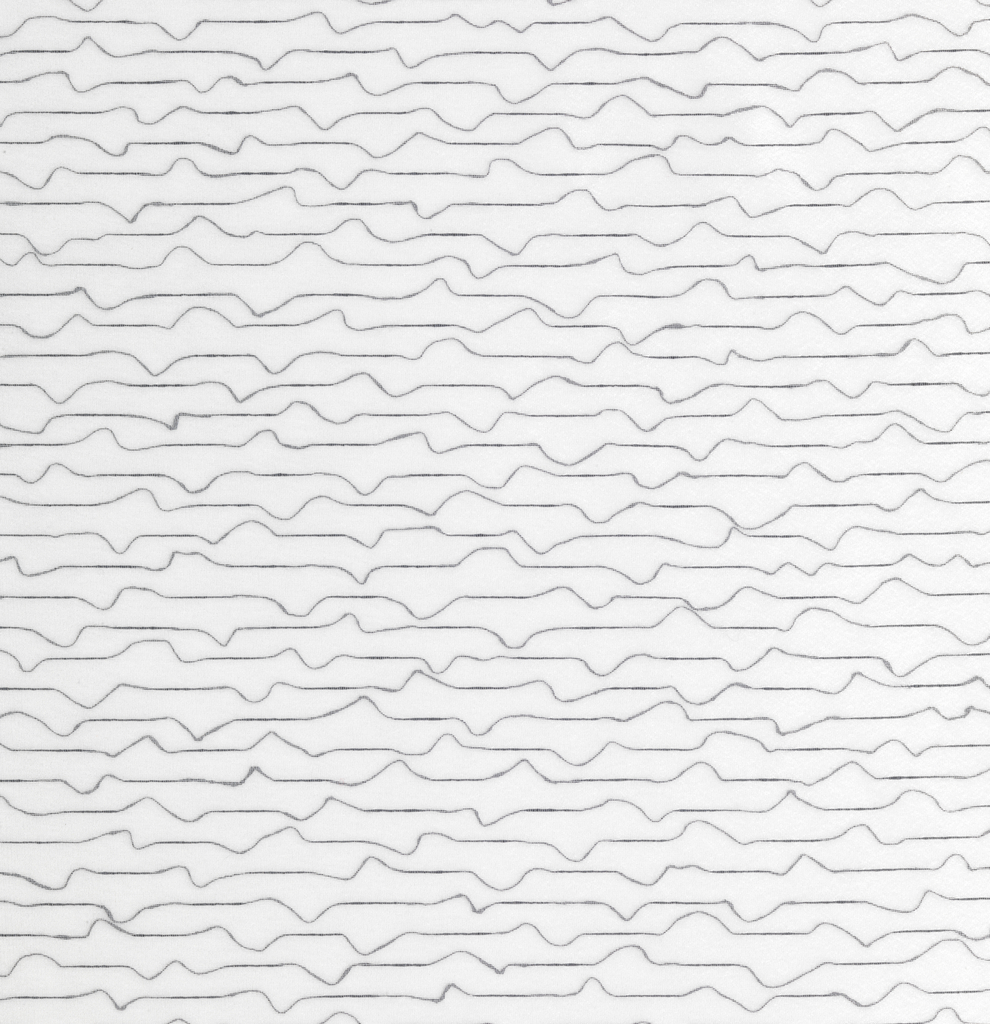Fluctuation is the perfect title for Japanese textile artist Akihiro Kaneko’s distinctive work, produced and sold today by Maharam. Made of polyester monofilament (like fishing-line thread) with a supplementary weft of washi, a traditional Japanese paper, the textile’s delicate simplicity is deceiving, as the process is actually quite complex. First, Kaneko creates the double cloth polyester and washi fabric, and then shrinks it using a heating technique. Depending on the amount of shrinkage, the washi threads react by undulating within the confines of the cloth. While the thin washi lines appear pattern-like and uniform, they are organically transformed by heat, making each line unique. The dark threads ripple throughout the neutral fabric, reminiscent of a seismograph or the faint outline of snowy mountain peaks. Through this remarkable process, Kaneko demonstrates his aptitude for combining traditional textile techniques with innovative technology and materials.
Kaneko is a graduate of The Rhode Island School of Design. Today, he works in his hometown, Kiryu, at his father’s textile business Kaneko Orimono. He continues to design and execute his own work, as well as collaborate with other notable Japanese textile artists like Junichi Arai and Hideko Takahashi.
Jacqueline Sullivan is studying the History of Decorative Arts & Design at Cooper-Hewitt / Parsons. She is a Master’s Fellow in the Textile Department.
